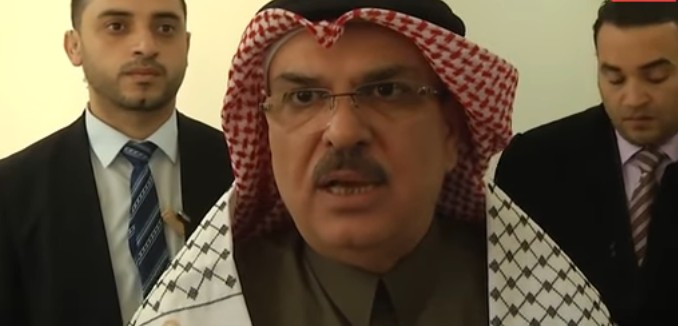Qatar’s representative in Gaza said last week that he had “excellent” relations with a number of Israeli officials, and also indicated that the Palestinian Authority was standing in the way of solutions to the power shortages and other problems in the Hamas-run coastal enclave.
“I am in contact with senior Israeli officials and agencies and the relationship is great,” Muhammad al-Amadi told The Times of Israel. It was the first time an official representative of Qatar had talked to the Israeli media.
“The head of the Coordinator of Government Activities in the Territories, [Maj. Gen. Yoav Mordechai], is of course one of them, but there are others,” he elaborated.
Al-Amadi has the rank of ambassador and heads Qatar’s National Committee for the Reconstruction of Gaza. On Saturday, al-Amadi helped dedicate a new section of the Hamad neighborhood, named after Qatar’s former emir, with new homes for Gazans who lost their homes during Operation Protective Edge, the 2014 war that Israel fought to stop Hamas rocket and tunnel attacks.
The current emir, Tamim bin Hamad al-Thani, pledged $1 billion in 2014 for Gaza’s reconstruction, but has yet to fully follow through. Hamas leader Ismail Haniyeh said at the ceremony in Hamad that Sheikh Tamim had personally promised him in a meeting last month that $100 million would soon be delivered. However, al-Amadi admitted to the Times, “this sum has not been yet been transferred.”
“In the future, the money will be used for solving the Gaza Strip’s electricity problem, the establishment of a hospital in Rafah, road rehabilitation, and a variety of other development projects,” he said. “In Hamad alone, we have completed building 2,224 of 3,200 apartments. But we are pausing at this stage in order to receive the rest of the pledged money as well as lands. Among other things, [the money] is also earmarked for the establishment of neighborhood schools.”
Hamas has been using the aid to boost its own coffers. When the first houses were made available in Hamad last year, Hamas advertised the homes as free, but then charged fees as high as $40,000 per family to connect the utilities. Hamas waived the fee for around 150 families who were affiliated with the organization, but the scheme still could have allowed Hamas to reap an estimated $36 million from Qatar’s generosity.
Al-Amadi also told the Times that was planning to travel to Ramallah to meet with Palestinian Authority Prime Minister Rami Hamdallah to come to an understanding to solve Gaza’s energy crisis. He spoke of creating a technical committee to deal with the problem and noted that “this is a very serious matter that should help you in Israel as well, since these are your neighbors that are without regular electricity and water flowing to their homes.”
“The Israelis understand this and are helping, but there are other parties that are not,” he added, making a veiled reference to the PA. Al-Amadi noted that while he was talking with Israel about extending a power line into Gaza, the issue of who would pay for the power, which is subject to a dispute between the PA and Hamas, has not been resolved.
Al-Amadi has also been acting as an intermediary between Israel and Hamas for the return of two captured Israelis and the bodies of two Israeli soldiers held in Gaza, but refused to confirm or deny that such talks were ongoing, citing their sensitivity. He suggested in the interview that Israel create an industrial zone bordering Gaza to help alleviate unemployment in the Strip. Hamas confirmed last week that it had turned down an offer from Israel to create such an industrial zone in exchange for the hostages and bodies held by the terror group.
[Photo: Associated Press / YouTube ]




